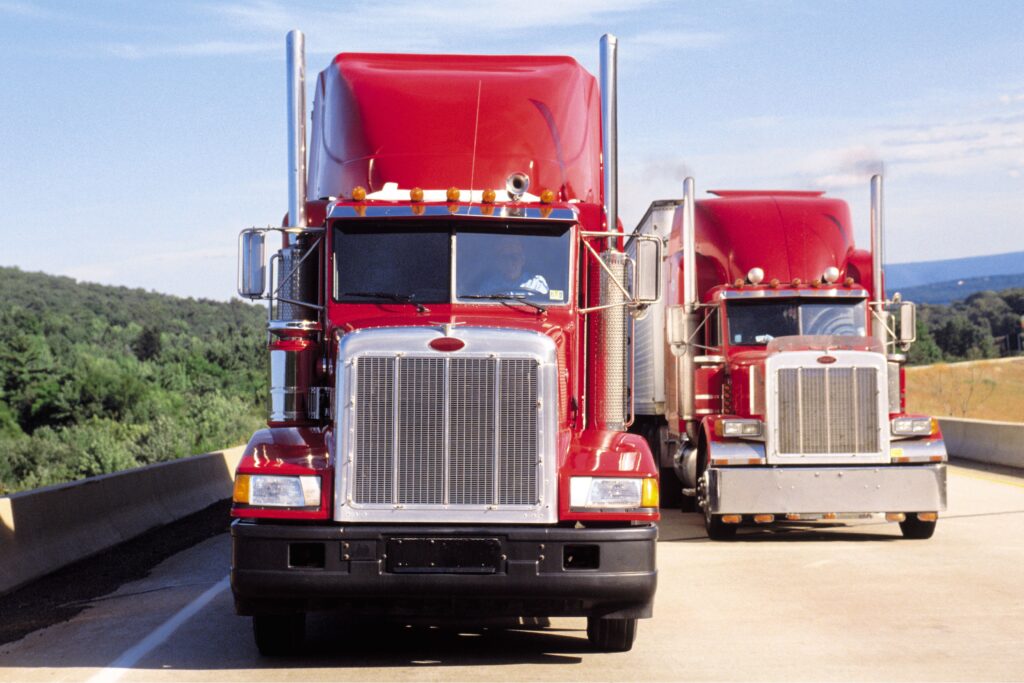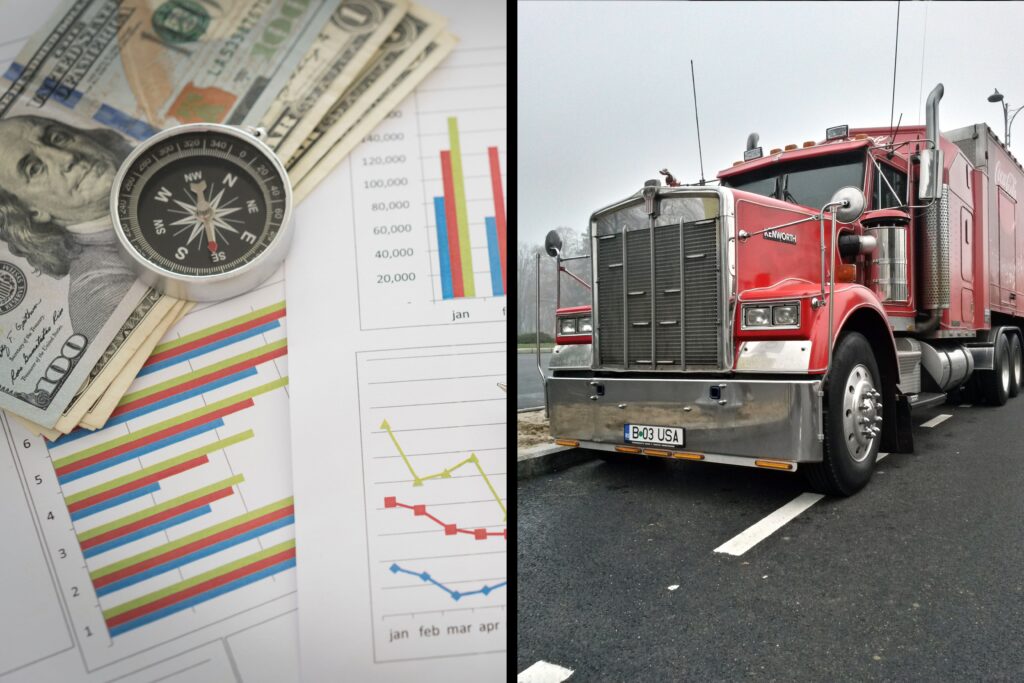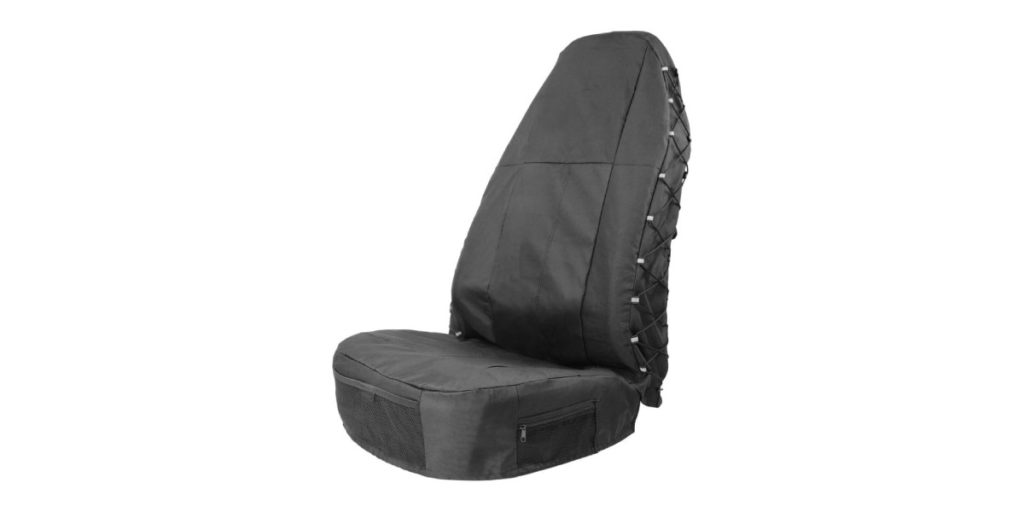
Definition and Purpose of Commercial Truck Loans
So, you’ve decided to venture into the world of commercial trucking. Congratulations!
It’s a promising industry that offers numerous opportunities for growth and success. However, it’s important to recognize that starting or expanding a trucking business requires a significant investment.
This is where commercial truck loans come into play. Commercial truck loans are specialized financing options designed specifically for businesses in the transportation industry.
These loans provide the necessary funds to purchase or lease commercial trucks, trailers, and other essential equipment for a successful trucking operation. Whether you’re a small fleet owner looking to add more vehicles to your existing lineup or an individual owner-operator aiming to buy your first rig, commercial truck loans can be a valuable financial tool.
Commercial Truck Loans for Businesses
Now you might wonder why obtaining a commercial truck loan is so crucial for businesses in the transportation industry. Well, let me break it down for you.
Without these loans, it would be incredibly challenging, if not impossible, for most aspiring trucking entrepreneurs to acquire the necessary capital upfront. As we all know, trucks are expensive beasts—especially when purchased new or leased from reputable dealerships.
And let’s not forget about all the associated costs like insurance fees and maintenance expenses that further strain your finances. Commercial truck loans offer businesses much-needed liquidity by providing access to substantial amounts of capital specifically earmarked for acquiring these heavy-duty vehicles.
With sufficient funds at their disposal, business owners can confidently invest in their fleet without draining their cash reserves entirely or resorting to less-than-ideal financial arrangements that could ultimately hamper their growth prospects. Simply put, commercial truck loans empower entrepreneurs within the transportation industry by allowing them to secure reliable assets while maintaining adequate working capital and financial stability.
See Here: https://truckerapproved.com/6-proven-strategies-to-grow-trucking-business/
Types of Commercial Truck Loans

Traditional Bank Loans
When it comes to financing the purchase of a commercial truck, one of the most common options is a traditional bank loan. These loans are typically offered by established banks and financial institutions. To qualify for such loans, potential borrowers need to meet certain requirements and qualifications set by the lending institution.
To secure a traditional bank loan for commercial trucks, borrowers usually need to have a good credit history and score. Banks want to ensure that they are lending money to individuals or businesses with a strong ability to repay the loan.
In addition, lenders may require a down payment as collateral or proof of assets that can be used as security against the loan. Interest rates on traditional bank loans can vary depending on various factors such as creditworthiness, market conditions, and the length of the repayment term.
Generally, borrowers with higher credit scores may be eligible for lower interest rates. The repayment terms can range anywhere from a few years to several decades, providing borrowers with flexibility in choosing an appropriate timeframe for repayment.
Dealer Financing Options
Another option that aspiring truck owners can explore is dealer financing. Many dealerships offer their financing options or work closely with financial institutions to provide convenient financing solutions for customers. One of the key benefits of dealer financing is its accessibility.
Dealerships often have less strict requirements compared to banks when it comes to credit scores and down payments. This means that individuals with less-than-perfect credit histories still have opportunities for securing financing.
However, it’s important to carefully consider the terms and conditions associated with dealer financing options. Interest rates offered by dealerships tend to be higher than those offered by traditional banks due to increased risk exposure on their part.
Additionally, borrowers should pay attention to any hidden fees or charges that could impact the overall cost of borrowing. Negotiating terms with dealerships is also an essential aspect of dealer financing.
Potential borrowers should be prepared to negotiate not only the interest rates but also other aspects, such as the length of the loan and any prepayment penalties. Taking the time to compare offers from different dealerships can help borrowers find the most advantageous terms for their specific needs.
Online Lenders and Alternative Financing Options

In recent years, the rise of online lending platforms has provided individuals and businesses with alternative financing options. These platforms connect borrowers directly with lenders, cutting out traditional intermediaries like banks or dealerships.
Online lenders offer a streamlined application process that can be completed entirely online, making it convenient for busy truck owners. These lenders often have more flexible requirements compared to traditional banks, focusing on factors beyond just credit scores when evaluating loan applications.
One major advantage of online lending is its speed. Loan approvals can happen within days or even hours in some cases, providing quick access to funds for purchasing commercial trucks.
However, borrowers should be aware that convenience comes at a cost as interest rates on online loans are generally higher compared to traditional bank loans. Alternative financing options offered by online platforms include lease-to-own programs and peer-to-peer lending.
Lease-to-own programs allow borrowers to rent a truck initially with the option of owning it after fulfilling certain conditions. Peer-to-peer lending involves borrowing from individual investors who provide funds through these platforms instead of traditional financial institutions.
While alternative financing options may seem attractive due to their flexibility and accessibility, borrowers should carefully consider their unique circumstances before opting for these approaches. Thoroughly understanding the terms and assessing potential risks is crucial in making an informed decision about which option best suits their needs.
Creditworthiness Assessment

When applying for a commercial truck loan, one of the most crucial factors lenders consider is your creditworthiness. In simple terms, creditworthiness refers to how likely you are to repay the loan based on your past financial behavior. Lenders assess this by looking at your credit score, which tells them about your history of borrowing and repaying money.
Your credit score plays a significant role in determining whether your loan application will be approved or not. It’s like a report card for your financial responsibility.
Generally, lenders prefer borrowers with higher credit scores because it indicates a lower risk of defaulting on payments. Suppose you have a high credit score (typically above 700). In that case, lenders will be more inclined to approve your commercial truck loan application and offer you better terms such as lower interest rates and longer repayment periods.
However, having a less-than-stellar credit score doesn’t mean you won’t be able to secure a truck loan. Lenders also consider other factors when evaluating your creditworthiness.
These include your income and employment history, debt-to-income ratio, existing loans or liabilities, and any bankruptcies or foreclosures in the past few years. So even if you have some blemishes on your credit report, showcasing stable income and responsible financial management can still improve your chances of getting approved for a commercial truck loan.
Collateral Evaluation
In addition to assessing your creditworthiness, lenders also consider collateral when evaluating commercial truck loan applications. Collateral refers to assets that can be seized by the lender if the borrower fails to repay the loan amount as agreed upon.
Lenders typically accept various types of collateral for commercial truck loans. The most common form is the truck itself – it serves as both transportation equipment and security for the lender.
However, other valuable assets such as real estate, heavy machinery, or even personal property can also be considered as collateral. The value and condition of the collateral play a significant role in determining the loan terms and interest rates offered by lenders.
If the truck you intend to purchase serves as collateral, it’s essential to ensure that it has a good resale value. Lenders want to minimize their risk in case they need to repossess and sell the truck due to payment default.
Therefore, a well-maintained truck with a strong market demand will likely result in more favorable loan terms. Conversely, if the collateral is deemed of low value or high risk by the lender, they may impose stricter loan conditions or higher interest rates to protect their investment.
Financial Documents Required for a Commercial Truck Loan Application

Tax Returns, Financial Statements, and Profit/Loss Statements
When applying for a commercial truck loan, you need to be prepared to provide your tax returns, financial statements, and profit/loss statements. These documents play an essential role in showing lenders your business’s financial health and stability. Tax returns give lenders insight into your business’s income and expenses over the past few years.
They show whether your business has been paying its taxes on time and can also indicate if there have been any significant changes in revenue or expenses. Financial statements provide a comprehensive snapshot of your business’s financial position.
They include the balance sheet, income statement, and cash flow statement. The balance sheet shows your assets, liabilities, and equity at a specific point in time.
It gives lenders an idea of the value of your assets that can be used as collateral for the loan. The income statement reflects your business’s revenue, expenses, and net profit or loss over a given period.
It helps lenders understand if you have consistent profitability to support loan repayment. The cash flow statement displays how money flows in and out of your business every month.
Bank Statements, Balance Sheets, and Cash Flow Projections
In addition to tax returns and financial statements, you will also need to provide bank statements when applying for a commercial truck loan. Bank statements offer evidence of your cash flow by showing deposits made into your business account as well as withdrawals or outgoing transfers that indicate regular expenses.
Balance sheets are another essential document required by lenders to assess the overall financial health of your business accurately. A balance sheet provides information about assets such as trucks or equipment owned by the company; liabilities like outstanding loans or debts; and equity representing ownership value.
Cash flow projections are estimates of how much money you expect to generate from operations over a specific period, usually monthly or annually. These projections demonstrate your ability to generate positive cash flow to cover loan payments and operating expenses.
It is vital to ensure that all these financial documents are accurate, up-to-date, and well-organized before submitting your commercial truck loan application. Lenders rely heavily on these documents to evaluate the financial stability and creditworthiness of your business, so being meticulous in preparing them can significantly increase your chances of approval.
The Process of Applying for a Commercial Truck Loan

Preparing the Loan Application Package
When applying for a commercial truck loan, it’s essential to have all your ducks in a row. Start by gathering the necessary documents, such as tax returns, financial statements, and profit/loss statements.
These documents provide lenders with a clear picture of your financial history and current business standing. Additionally, make sure your bank statements, balance sheets, and cash flow projections are up-to-date and accurate.
Gathering Necessary Documents
To gather all these documents efficiently, create a checklist that outlines everything you need before starting the application process. This checklist should include items like proof of income from your business operations or employment records if you’re applying as an individual. Don’t forget to include any relevant licenses or permits required for commercial trucking.
Organizing Financial Information
Once you have gathered all the necessary documentation, it’s crucial to organize them in a systematic manner that is easy for both you and the lender to navigate through. Create separate folders or digital files for each type of document (e.g., tax returns folder), making sure they are labeled clearly. If possible, provide a summary sheet that outlines key financial figures as an added convenience for the lender.
Submitting the Application
After meticulously preparing your loan application package, it’s time to submit it to potential lenders or dealerships. Take your time when choosing who to approach; research their reputation and reviews beforehand. When applying, ensure all information is accurate and complete. Even small errors can delay the process or lead to rejection.
Choosing The Right Lender or Dealership
Choosing the right lender or dealership is crucial in securing favorable terms for your commercial truck loan. Look for institutions that specialize in commercial truck financing as they often understand the unique needs of trucking businesses.
Compare interest rates, repayment terms, and any additional fees or charges associated with the loan. Consider contacting different lenders or dealerships to get a sense of their customer service and responsiveness.
Providing Accurate Information
During the application process, it’s imperative to provide accurate and truthful information. Lenders will carefully review your details, including your credit history and collateral value.
Misrepresentation or providing false information can lead to severe consequences, such as loan denial or legal complications. Be transparent about your financial situation and any potential challenges your business may face so that lenders can make an informed decision.
Undergoing the Approval Process
Once you’ve submitted your application, it enters the approval process. During this stage, lenders will review your credit history and assess the value of any collateral you’ve offered for securing the loan.
They will also consider other factors like your income stability and existing debt obligations. This is where having a good credit score can significantly increase your chances of approval for favorable terms.
Lenders will evaluate all these aspects to determine whether you are a trustworthy borrower who is likely to repay the loan on time. Remember that each lender has its evaluation criteria and processes; therefore, it’s important to be patient throughout this phase as it may take some time before receiving an approval or rejection decision from them.
Negotiating Terms and Conditions for a Commercial Truck Loan

Interest Rates
When it comes to negotiating terms and conditions for a commercial truck loan, interest rates play a crucial role. These rates determine how much you’ll end up paying over the life of your loan, so it’s important to secure the best possible rate.
Start by researching current market rates and comparing them across different lenders. Armed with this knowledge, you’ll have a better understanding of what is considered reasonable.
During negotiations, don’t be afraid to negotiate interest rates with the lender or dealership. Show them that you are well-informed about prevailing rates and emphasize your strong creditworthiness or business performance.
Additionally, consider offering collateral or making a larger down payment as leverage to negotiate better terms. Remember, every percentage point lower in interest rate can translate into significant savings in the long run.
Reviving Up Towards Success
Understanding commercial truck loans can be the key to unlocking growth and success for businesses in the transportation industry. By exploring different types of loans, considering various lenders or dealerships, and being proactive in negotiations, entrepreneurs can secure favorable terms that will keep their businesses on the road toward prosperity.
While navigating through complex financial processes may seem daunting at first glance, it is important to approach it with confidence and preparation. Trust your instincts but also seek advice from financial professionals who specialize in commercial truck loans if needed.
Remember that obtaining a commercial truck loan is not just about financing; it’s an investment in your dreams and aspirations as an entrepreneur. Stay optimistic as you embark on this journey, knowing that with thorough research and strategic negotiation skills, you can find yourself behind the wheel of success sooner than you think!










